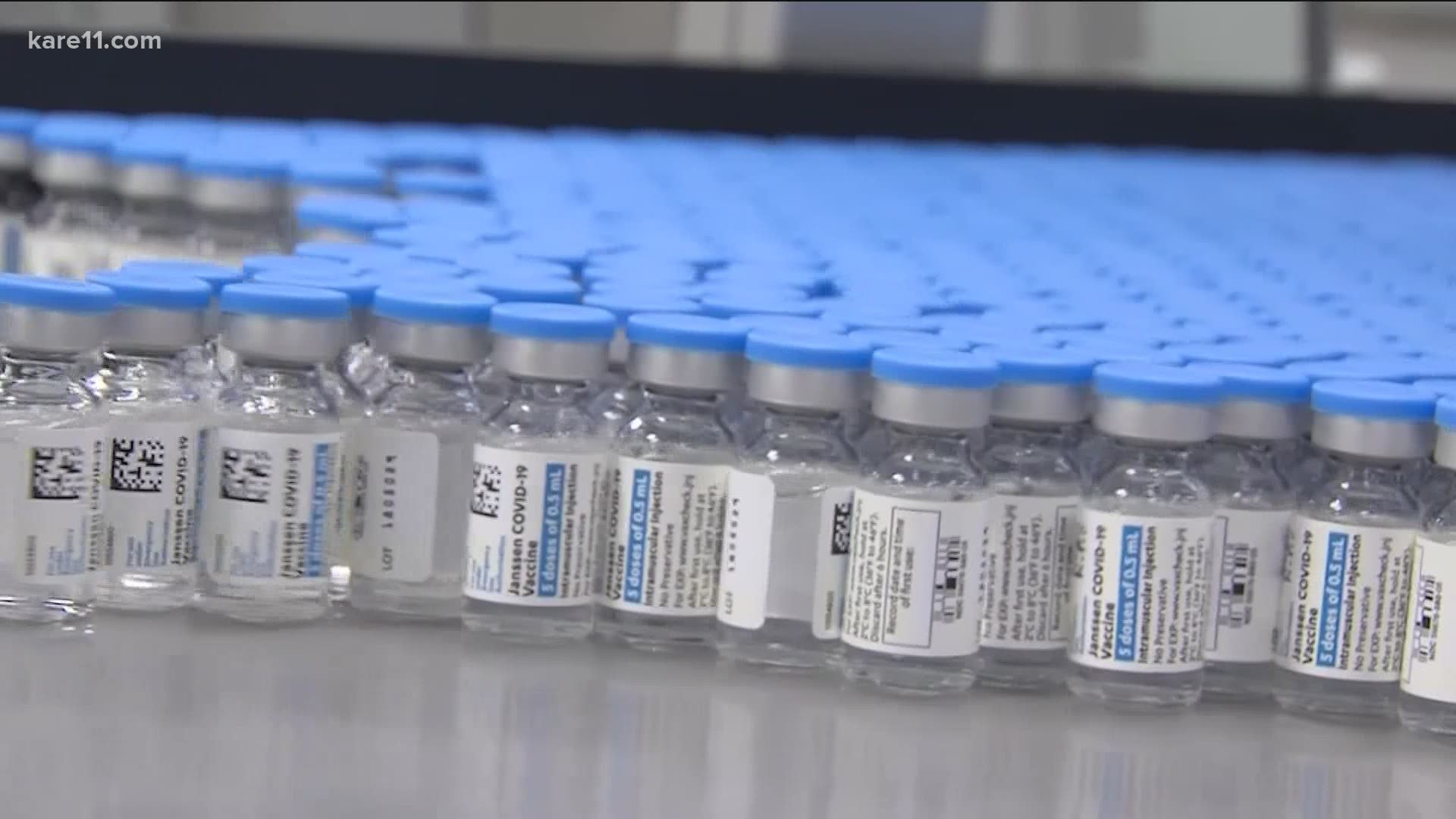MINNESOTA, USA — The CDC and FDA want to pause giving out the Johnson & Johnson vaccine until they can figure out why six people developed blood clots after receiving the shot.
According to the CDC, out of the six women who developed blood clots, one has died and another is in critical condition.
These are both very serious, and grave outcomes, but Dr. Hannah Lichtsinn at Hennepin Healthcare says it’s important to understand the overall context of this situation.
“These are six people out of about seven million who had the vaccine have experienced a blood clot in the days following the vaccine,” Dr. Lichtsinn says.
The CDC says more than 900,000 Americans develop blood clots every year.
About 100,000 of those cases are fatal.
Blood clots can lead to a variety of problems, from poor circulation, to heart attack and stroke.
Dr. Litchsinn says every year about one in a thousand women will develop a blood clot after taking birth control pills.
She says that’s quite a bit higher than the one in a million chance people have of developing a blood clot after taking the Johnson & Johnson vaccine.
"Also things like having a surgery or taking a long, greater than eight hour flight or car ride, that will also put the body at risk of blood clots,” Dr. Lichtsinn says.
Recent studies also show a connection between blood clots and COVID-19. Studies show that about 23% of the COVID-19 patients who were admitted into intensive care units developed blood clots in their legs.
Dr. Lichtsinn says it's good to see that federal officials are looking into this disturbing connection between blood clots and the Johnson & Johnson vaccine, but she still believes a person's odds of catching the virus and having a serious reaction to it are far greater than any sort of side effect they can develop after taking the vaccine.
"In the end, each of us as an individual has to weigh the risks or benefits of any medical decision being made for ourselves, and the best way to do that is by talking with your doctor,” Dr. Lichtsinn says.
The FDA and CDC say all six women who developed blood clots after taking the Johnson & Johnson vaccine were between the ages of 18 and 48.
Dr. Lichtsinn says age is definitely a factor that researchers should look into to better understand why these women developed blood clots.
She says high estrogen levels and cigarettes are two other factors that carry a higher risk of developing blood clots.
International scientists have also found blood clots in patients who took the AstraZeneca vaccine overseas.
Dr. Lichtsinn says the AstraZeneca vaccine and the Johnson & Johnson vaccine do share a common bond in the way they protect the body from COVID-19.
The FDA and CDC say these two vaccines are different from the Moderna and Pfizer vaccine, and so far neither of those vaccines have been connected to patient’s developing blood clots.
If you received the Johnson and Johnson vaccine over a month ago, the CDC says there is a very low risk that you'll develop any side effects.
If it was less than two weeks ago the CDC says patients should keep an eye out for these symptoms:
- Severe Headaches
- Abdominal Pain
- Leg Pain
- Shortness of Breath
If you feel any of these symptoms, contact your doctor right away.

